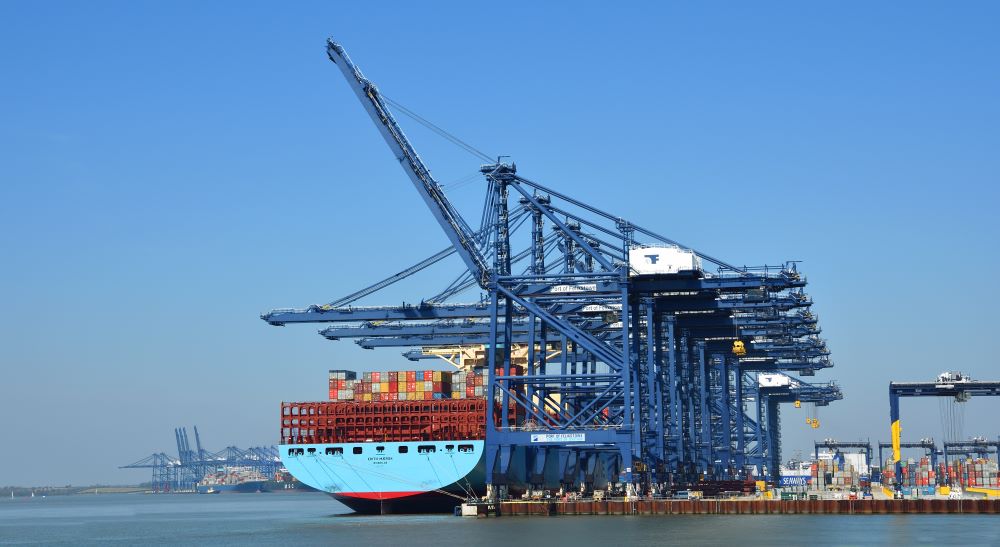
The chief of the trade association for UK ports has insisted that supply chains will be “resilient” to the eight-day workers strike at Felixstowe, with any direct impact on consumers being “less and more spread out than some people might think”.
Members of trade union Unite at the Port of Felixstowe had previously voted to strike over pay.
Speaking to City AM, Tim Morris, chief executive of UK Major Ports Group, said: “Companies have [also] been working to prepare for this strike and the UK has a broad network of ports.”
The reassurance comes as shipping company Maersk has already diverted vessels away from the striking port, with one ship already at London Gateway.
Disruption expected
Other analysts disagree with Morris's assessment, suggesting the impact could still be significant.
Shane Brennan, CEO of the Cold Chain Federation, told The Grocer that the industrial action meant: “more pressure on a [supply] chain that is already tackling rampant cost inflation, long lead times and labour issues.”
John Glen, chief economist at the Chartered Institute of Procurement and Supply, argued tha that the additional logistics costs of the strike will “add an inflationary impulse,” adding that consumers might see “a lack of choice” for particular products, as reported in Bloomberg.
True amount
According to The Guardian, as much as $800m (£680m) in trade could be affected.
Analyst MDS Transmodal suggested the true amount could be closer to $4.7 billion, given 48% of all containers for the UK are processed at Felixstowe Port.
Because Felixstowe typically handles bulkier items shipped from Asia, experts also suggest big-ticket items might be delayed – such as furniture, clothing and large electronic goods.
Knock-on effects
Speaking to CNBC Josh Brazil, VP of supply chain insights for Project44, said the main other issue will be the knock-on global congestion that the strike creates.
He said: “Ports like Rotterdam, Hamburg and Bremerhaven are struggling with accommodating vessels, leading to vessel queuing off their coast. The average cargo lead time for the TransAtlantic route has climbed to 27 days in July, close to its all-time high of 29 days at the start of the year.”
Further strikes
The prospect of future strikes at the port remains a real possibility.
Leaders at Unite have already begun warning that more walkouts could happen if bosses at the port do not meet workers’ pay demands of increasing pay between 7-to-12.3%.
Unite said members rejected the average 8% pay offer from the Felixstowe Dock and Railway Company because the wage offered was lower than the rate of inflation.
The Loadstar reports that management at the port has told workers not to return until Tuesday (30 August), with dockers missing out on bank holiday overtime, forcing shippers to wait an additional 24 hours.
